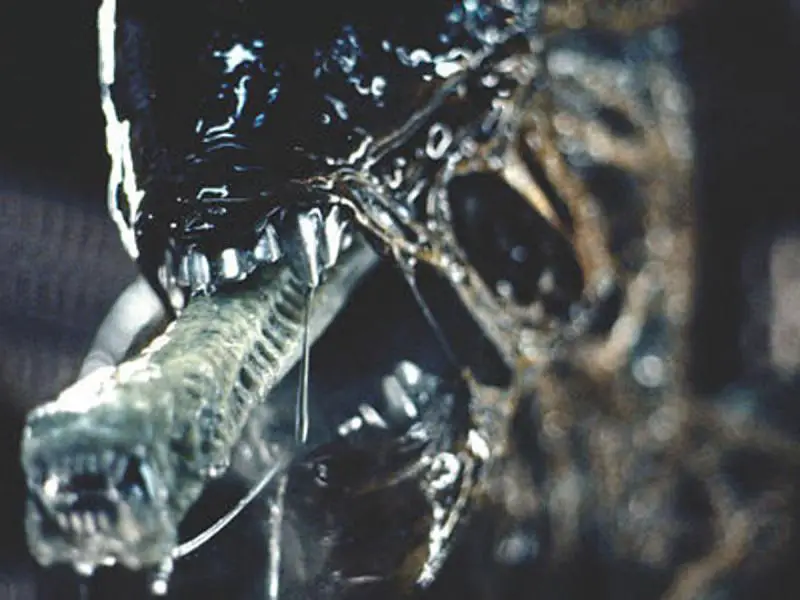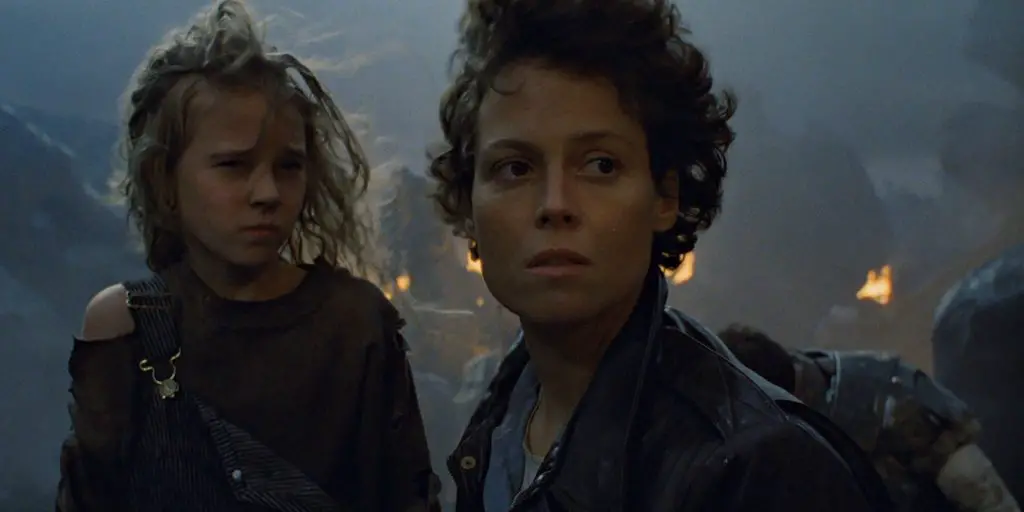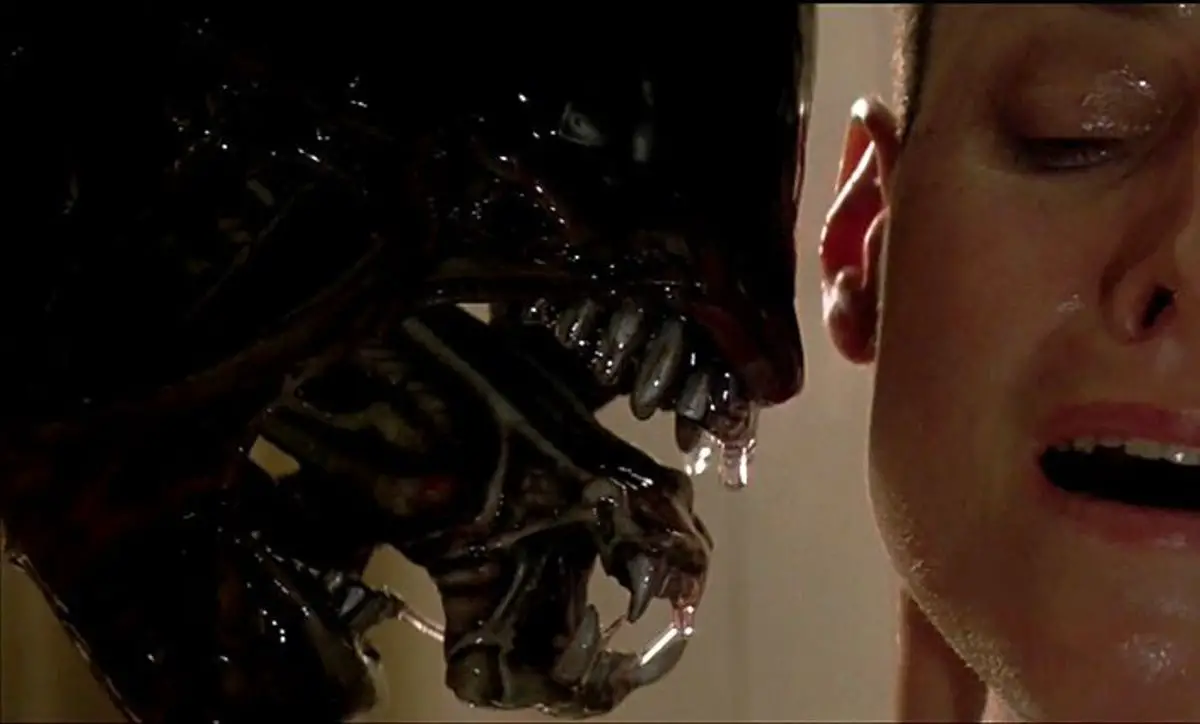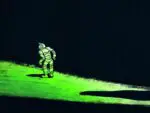The Alien’s Not So Alien Anymore
Even Ridley Scott is getting tired of rehashing the Xenomorph.
By Daniel DeAngelo, University of Tampa
For the better part of three decades, various directors have tried to get the lightning that was “Alien” and “Aliens” to strike a third time, and it hasn’t worked.
Here are three spoilery reasons why it might be well past time the series was put out of its misery.
1. The bad movies have finally managed to ruin the good ones.
It’s bad enough that the overall quality of the franchise has fallen so far that the line graph resembles a water slide. The two most recent installments in the series have managed to retroactively take away what made the first two horror classics. What was it that made the Xenomorph so terrifying in the early movies? Yes, there was the teeth and claws, and the acid and double mouth thing, and the rape metaphor, but that’s all fairly surface-level stuff. Lots of movie monsters boast the same features; none of it is what made the alien The Alien.

What made the Xenomorph stand out was that it was an unknown. Critic Bob Chipman probably said it best in his review: “Yeah, everything had proper names, but they were largely presented to us as The Crew, on The Ship, working for The Company, versus The Alien.” The name of the creature wasn’t even said out loud in the first two movies. It was just a thing in space killing people. There was no reason for it to be there. It just was. It wasn’t a product of any sentient malice, but rather of an indifferent universe where there is no inherent order or morality, only the biological imperative to survive. In short, the creature is scary, but the fact that it could be allowed to exist is terrifying.
“Prometheus” and “Alien: Covenant” could not have missed that point more completely. By trying to create a complex mythology, they sanded off most of the creature’s allure. The new backstory is that a race called the Engineers created humanity, then created a version of the alien to destroy humanity. The reasons for that are never explained, though it was probably something about war or pollution, because it always is.
In “Covenant,” it’s revealed that the alien, as it exists in the original films, was created by the starship Prometheus’ deranged android, David. After a fairly predictable ending in which David takes the place of an identical android on the protagonist’s ship, he stashes some frozen facehugger embryos on board as part of his plan to seed the galaxy with his creations, while also facilitating an indefinite number of “Alien” prequels. So, that’s the conceptual evolution of the alien over the last thirty-eight years: An unknowable cosmic horror becomes an android’s science project.
2. Nobody, including Ridley Scott, knows how to make Alien movies anymore.
It’s tempting to blame everything on Ridley Scott, if for no other reason than his ridiculously pretentious production logo. While he wasn’t the only person to ever direct a film in the “Alien” series, he is the one who created it. If anyone knows how to do it, it’s got to be him. Yet, as the director of “Prometheus” and “Alien: Covenant,” he clearly misses the point as much, if not more, than everybody else. Overall, Scott remains an excellent filmmaker, as the man is responsible for “Blade Runner” after all. For that reason, no one who isn’t being hyperbolic would say Scott’s becoming the next George Lucas. Still, he’s made pretty much all the same mistakes in the Alien prequels that Lucas has in his.
Both filmmakers felt the need to explain things that were better off a mystery, whether or not it contradicts the established canon. In “Alien,” the Xenomorph arrived on the planet where the movie is set by hitching a ride inside the chest of what “Prometheus” identifies as an Engineer. “Alien: Covenant,” on the other hand, ends with David and his pet rape monsters back on a human ship. In Lucas’ “Star Wars: A New Hope,” the force is presented as a mystical, well, force that permeates the universe. In the prequels, Lucas insisted on forcing a scientific-sounding explanation that he ripped off from fantasy novelist Madeline L’Engle. Both Scott and Lucas also had a strange need to connect everything, with all the characters in “Star Wars” being one degree of separation from everyone else, and Scott finding a way for the cartoonishly evil Weyland-Yutani Corporation to be indirectly responsible for the Xenomorph’s existence.

In fairness, it’s not like anyone else has done much better. James Cameron’s “Aliens” took the sequel in the only direction it could really go, and had a solid ending. While “Alien” concluded with the heroine Ellen Ripley and her cat adrift in the void, the sequel gives the impression that she, her replacement daughter and the mandatory one android, get away safely. After that, all the minds behind “Alien 3” and “Alien: Resurrection” could come up with was doing basically the same thing two more times. The creators of “Resurrection” were so committed to keeping to formula that they brought Ripley back from the dead to be the protagonist again.
There’s nothing wrong with Ripley. There aren’t many sci-fi movies with female protagonists, and she’s spectacularly well written and performed. But people go to an Alien movie for the alien, and everything that can be done with the Xenomorph already has been.
3. Ridley Scott clearly wants to do something else anyway.
Back in 2015, Scott told Yahoo Movies that he was done with the original Xenomorph, saying, “I think it wears out a little bit. There’s only so much snarling you can do.” While still a prequel to “Alien,” “Prometheus” is thematically similar to “Blade Runner,” Scott’s high-concept sci-fi rumination on the nature of existence. Looking at much of his post-“Alien” filmography, which also includes “Gladiator,” “Black Hawk Down” and “The Martian,” it is evident that he has a talent for character-driven works.
“Alien: Covenant” ends up feeling like a compromise—a hybrid between the monster movie people want to see in an “Alien” film, and the more cerebral “Blade Runner” style movies Scott wants to make. While it might not be an impossible endeavor, Alien is not the series for it. “Prometheus” might have been a good movie if it hadn’t been written as a prequel.
And that’s why everyone just needs to let Alien be while there’s still some good will left for it. Unfortunately, Scott’s a brilliant, visionary director who seems content to keep making Alien prequels until he runs the franchise into the ground.













